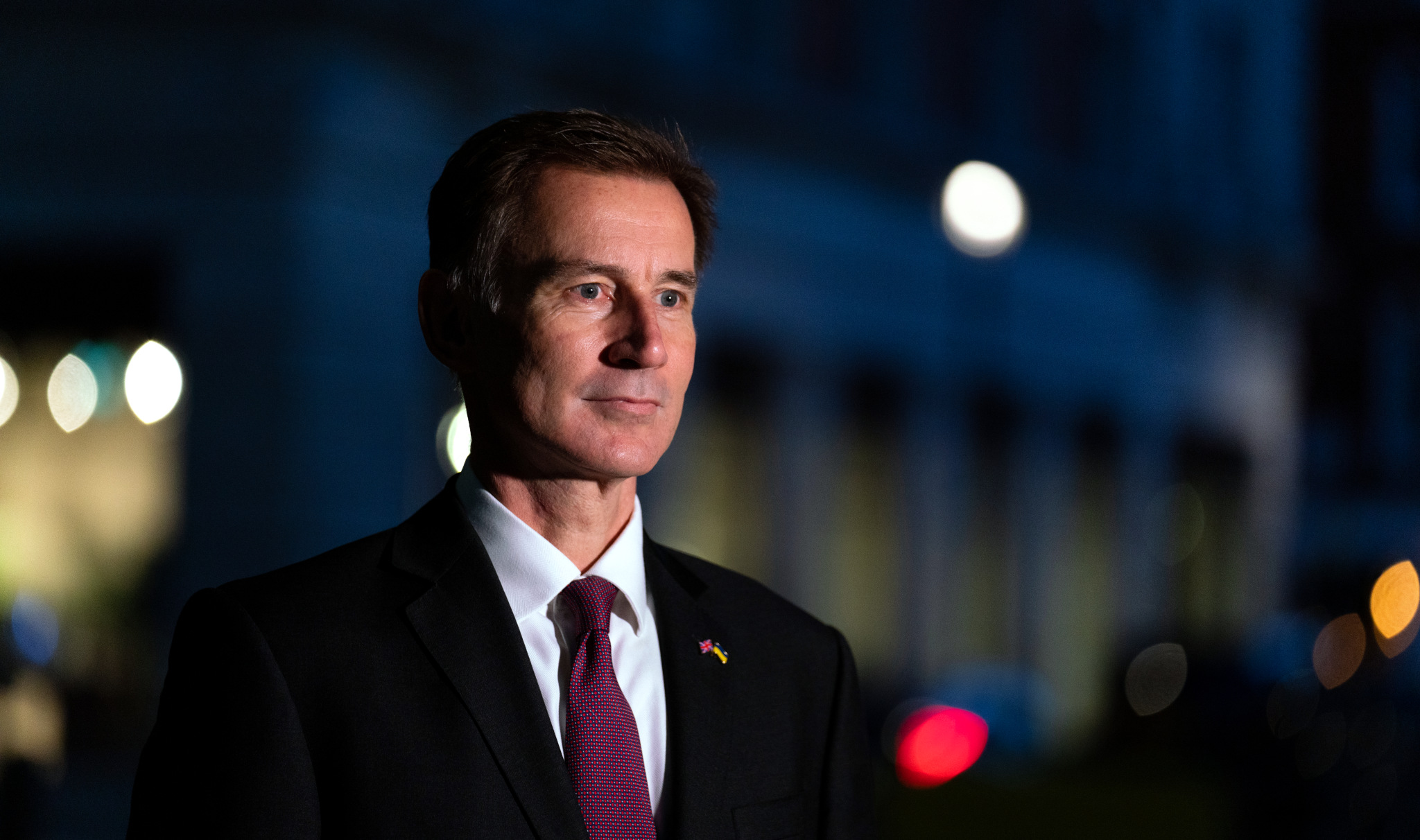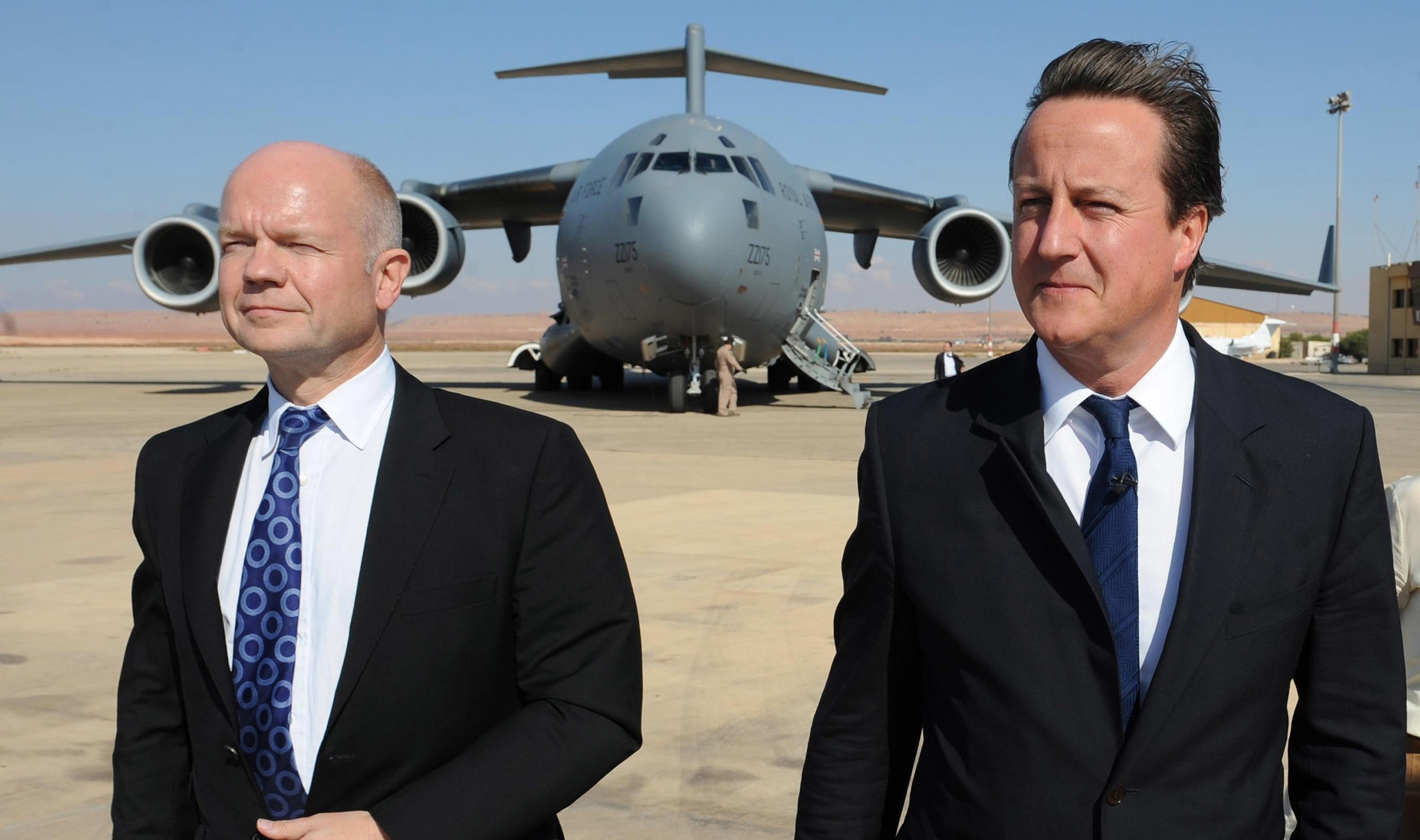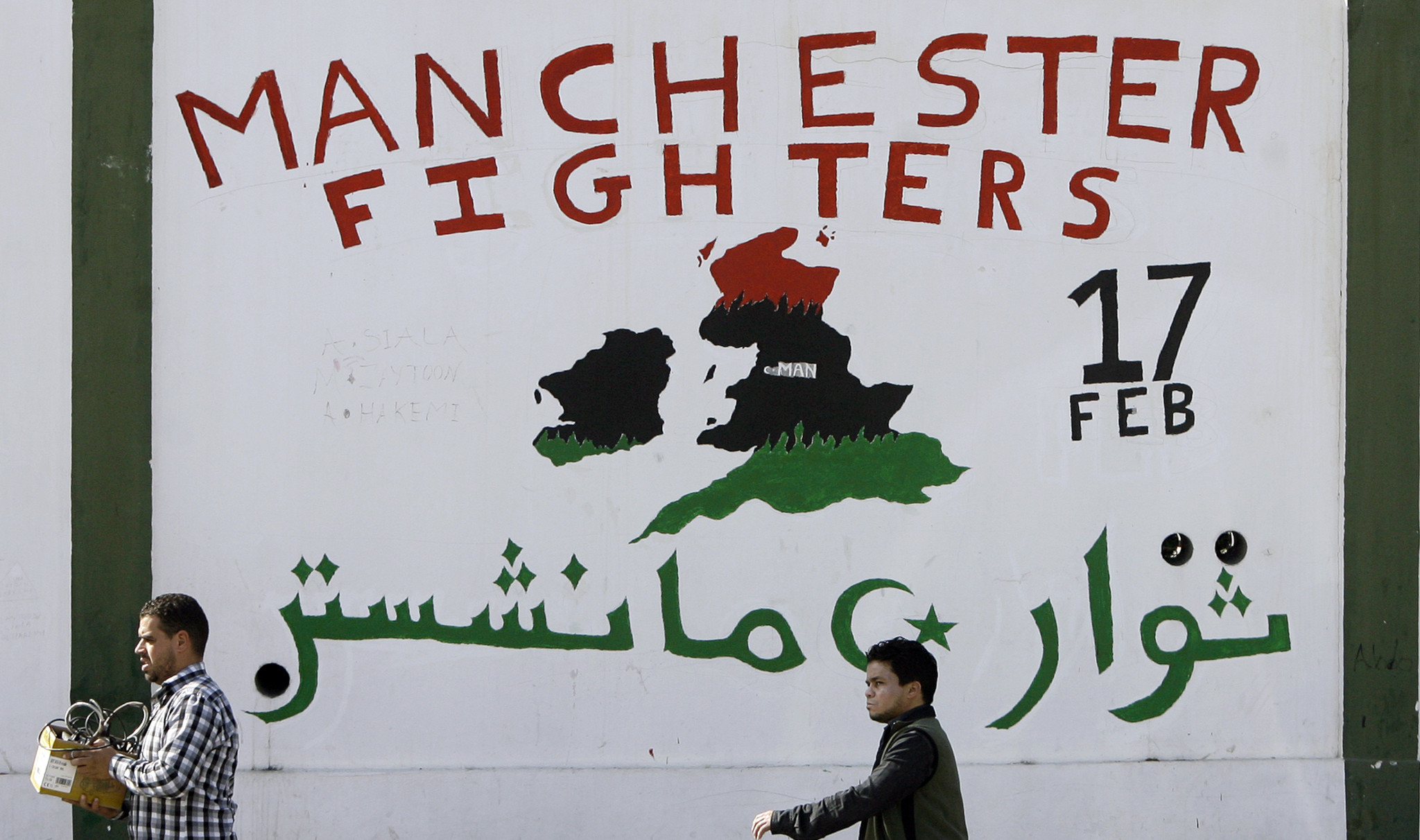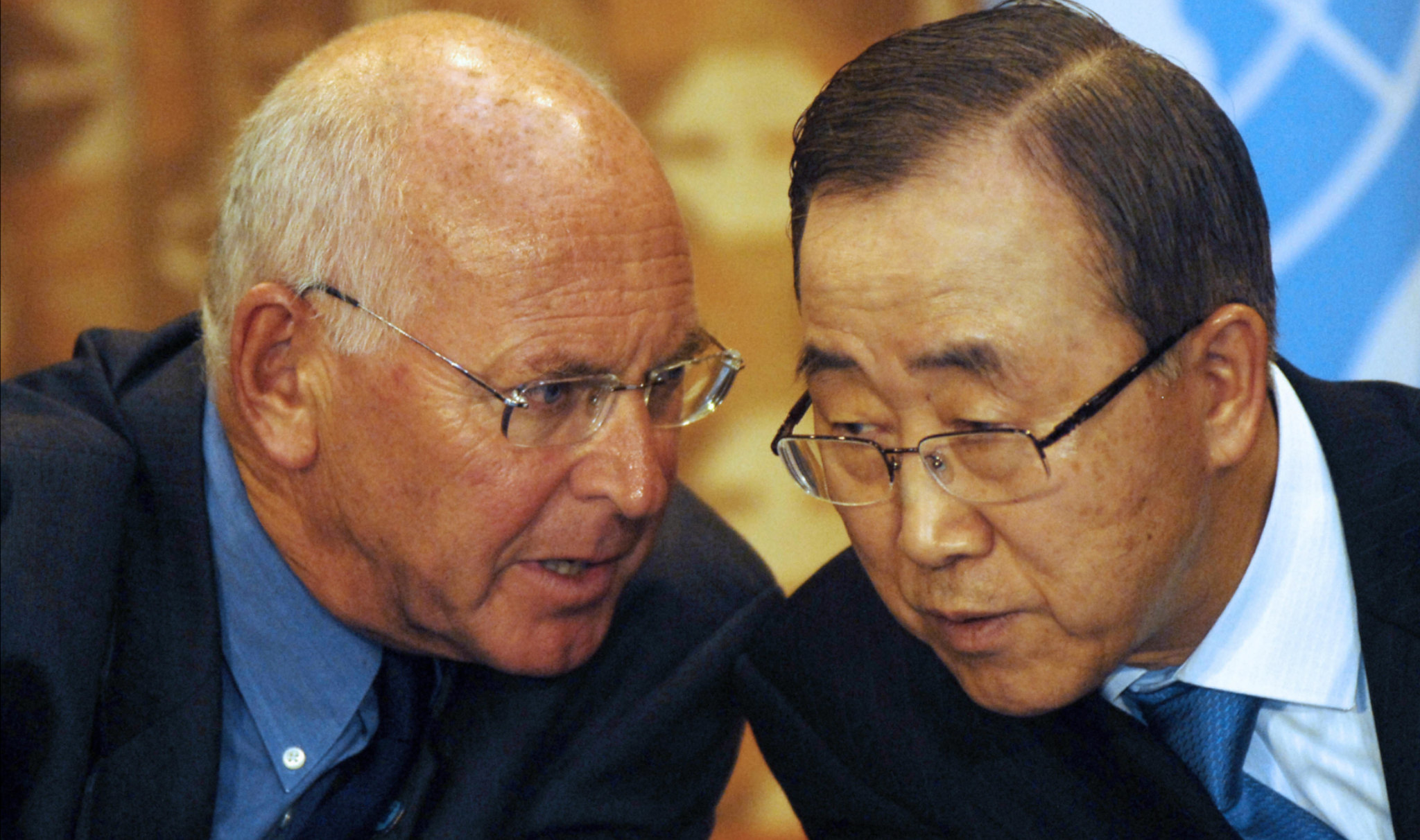Community organisers in Manchester say David Cameron’s aggressive foreign policy exposed a young generation of Libyans in Britain to extreme violence. And his austerity agenda – zealously implemented by Jeremy Hunt as Health Secretary – left them without psychological support to treat their trauma.
The warning comes amid Hunt’s return to frontline politics as Chancellor, with a fresh round of spending cuts announced last week.
Declassified spoke to Abdul-Basit Haroun, who used to chair a Libyan community group in Manchester. He took part in the uprising against Colonel Muammar Gaddafi in 2011, which Cameron’s government backed with airstrikes and boots on the ground.
Haroun told us that British police allowed parents to take their teenage children to fight in Libya – creating problems on their return.
“Child fighters suffered from mental illness caused by the war,” Haroun claimed, speaking through an interpreter. “I’ll give you a real case: Three youths who came from the UK to Libya at the start of the revolution, aged between 14-17.
“When we entered Gaddafi’s compound, we found them shackled to dead bodies [of fighters] lying on top of them. One of the boys stopped speaking for weeks after this. And when these boys went back to the UK, nobody gave them treatment. Nobody cared about them.”
Mental health cuts
Cameron’s government spent over £320m on military operations to help Libyan rebels topple Gaddafi’s regime. Thousands of people from all sides were killed or injured during the uprising.
Gaddafi’s successors arranged for at least 50 rebels who were maimed in the conflict to receive rehabilitative care at hospitals across Britain. Footage shows the amputees arriving at Manchester airport in early 2012.
Yet there was no similar psychiatric care for those with less visible injuries – especially the young men from Manchester’s long established Libyan community who were traumatised by the war.
“Even this guy who made the bomb – he was sick”
Those who did seek help would have to rely in general on the NHS, an organisation being whittled away by Hunt. The Conservative-Liberal Democrat coalition cut almost £600m from England’s mental health budget by 2014.
That year the charity Mind warned: “The treatment gap for mental health is huge – 75 per cent of people with mental health problems get no help at all.”
Haroun believes this combination of war and neglect contributed to the Manchester Arena suicide bombing in 2017. “Even this guy who made the bomb – he was sick. Salman [Abedi], he was sick,” Haroun commented.
As a 16-year-old boy, Abedi was taken to Libya by his father during the anti-Gaddafi uprising. Once there, he was photographed holding heavy weapons and wearing camouflage clothing.
Post-war, he helped an Islamist militia hunt down Gaddafi sympathisers before returning to Manchester and killing 22 people at a pop concert.
Reading park killer
Another Libyan-linked terrorist attack in Britain was perpetrated by Khairi Saadallah, who murdered three men at a park in Reading, west of London, during the Covid pandemic.
Saadallah was born and raised in Libya. There, he fought against Gaddafi as a rebellious 16-year-old in 2011. A photo shows him brandishing a kalashnikov rifle while holding a spliff.
He says he was trained by French soldiers and served in Ansar al-Sharia, a militia banned as a terrorist group over its links to Al Qaeda. After the war, as happened to Abedi, victorious Islamist militants wanted Saadallah to help hunt down Gaddafi loyalists.
Saadallah wrote in a statement: “People came from Shariah law [Saadallah’s term for Ansar al-Sharia] and started killing Gaddafi soldiers and hurting women. Going home from Benghazi to Tripoli I found more soldiers from Gaddafi’s army.
“There was a woman cooking for these soldiers. Shariah law soldiers asked me…to hurt this woman. I refused and they said they would kill me. I then agreed to hurt the woman to be free and afterwards I ran away.”
He fled to Manchester, where he became critical of his former comrades and their extreme views. In response, Ansar al-Sharia tortured his brother and killed his uncle, according to an asylum claim he lodged with the Home Office.
This department, then run by Theresa May, operated a hostile environment policy and a culture of disbelief. They rejected his asylum case, despite Human Rights Watch and Amnesty International having warned former rebels were conducting gruesome vendettas.
Even more remarkably, the Home Office did not seem alarmed by Saadallah’s professed tenure in a banned terror group. He was not detained or deported. Instead he was left destitute in Manchester, a city the security service MI5 had identified as dangerous ground for young Libyans exposed to extremism.
Big Society
It was in Manchester that Saadallah drifted between an array of ‘Big Society’ groups. That’s what Cameron called the charities and NGOs he expected to fill the void left by his welfare cuts to state services.
Yet the policy failed. Saadallah fell through the cracks and became increasingly desperate. As an asylum seeker, he was banned from working, and had been out of education for several years. In January 2014, he attempted suicide in the local office of Refugee Action, a large charity that received Home Office funding.
Saadallah was taken to A&E, from where someone alerted Refugee and Asylum Participatory Action Research (Rapar), a Manchester-based human rights organisation run by activists. On the big society spectrum, Rapar is at the smallest end, effectively a campaign group for refugee issues.
“There were a lot of very extreme groups in that mix and he was effectively a child soldier”
Yet it was this tiny, scarcely resourced organisation which tried the hardest to put Saadallah, then aged 19, back on a safe path. This is the first time Rapar has spoken to the media about their contact with Saadallah.
Rapar soon realised the teenager was deeply traumatised from the war in Libya. “There were a lot of very extreme groups in that mix and he was effectively a child soldier,” Dr Rhetta Moran, a co-founder of Rapar who knew Saadallah, told Declassified.
Rapar’s case notes show Saadallah seemed “fixated on themes of violence. There is a very apparent discomfort when he is reminded or mentions his experiences in Libya”.
Even when asked about his hobbies, favourite foods or music, the troubled teenager would “randomly bring up the conflict in Libya…killings and guns.”
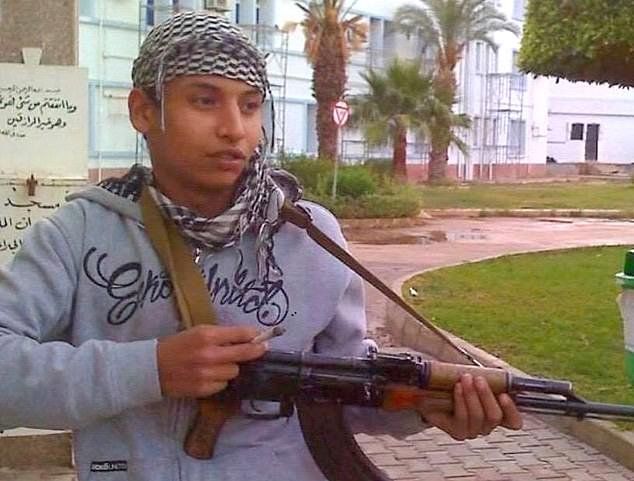
‘Emergency’
Moran spent a year and half trying to find larger organisations who could help the young Libyan with his mental health problems, lack of housing and insecure immigration status.
But the case was at the limit of Rapar’s capacity. “The situation is desperate,” Moran warned a doctor in an email during February 2014. “Our members cannot continue to provide emergency accommodation for Khairi [Saadallah] at serious risk to themselves and our organisation.
“This very young adult is displaying regular and increasingly intense suicide ideation. Please arrange for an emergency psychiatric referral before this young man actually – and once more – attempts to kill himself.”
Saadallah became particularly suicidal during a meeting with an immigration lawyer, and threatened to cut himself with a razor. He was prescribed medicine for schizophrenia, but increasingly relied on alcohol and class A drugs.
By March 2014, Saadallah’s behaviour was so erratic that Rapar wanted to bar him from their office “unless and until there is a stable environment – i.e. the state secures him some accommodation and starts intervening service wise – so that we can do what we do without unacceptable risk to us”.
There was profound discomfort within Rapar at the pressure Cameron’s Big Society strategy was putting on small voluntary groups to deal with the fallout from his foreign policy adventures.
Rapar wanted to “go public about what is going on”. They felt that “silence would be collusive in another and different way to all those agencies who have already turned their faces away from him.”
But just as matters were reaching a crisis point within Rapar, Saadallah was admitted to a mental health ward at a hospital in Manchester, and the group chose not to go public – a decision that Moran now considers ill-judged.
“We function from the ethical principle of, at the minimum, do no harm,” she said. “Khairi was so vulnerable at that moment we did not feel that we could effectively protect him as an individual and simultaneously go public. Ultimately though, neither Khairi nor anyone around him stayed safe.”
Saadallah would be discharged from hospital after just a few days, and Rapar had a “brutally honest” conversation with him about what support they were willing to provide. They began making some progress on his immigration case, but near the end of March 2014 he attempted suicide again at Refugee Action.
He had refused to leave the charity’s office until they found him housing. Notes say his hands were “blue from cold” after sleeping rough. He was briefly hospitalised from an overdose, but the police told him to stop asking Refugee Action for help.
Last night the charity’s chief executive, Tim Naor Hilton, told Declassified: “We are not allowed to discuss the personal details of individuals.”
But he added: “In 2014, the Home Office was funding Refugee Action to run its Choices programme and asylum services in the UK. Choices was the UK’s Assisted Voluntary Return service, which helped people who were considering returning voluntarily to their home country with impartial and independent advice.
“Our asylum services helped clients who were eligible for section 4 or section 95 support access financial aid and housing. People would receive advice from a caseworker. Safeguarding was and is our number one priority when delivering services to people in the asylum system.
“We sometimes change how we work with people if there are risk factors to make sure they still receive the necessary service but at the same time making sure our staff, volunteers and other people we support are safe.
“Then as now, people in the asylum system must face the Government’s hostile environment in which they must live in limbo – often for years – in poverty and isolation.”
Downfall
The hostile environment left Saadallah, in his own words, “living like an animal on the street”. By May 2014 the policy began to have its intended impact, as he contemplated returning to Libya. He hoped to fight for General Khalifa Haftar – a secular army commander – against Islamist militias.
Yet the young Libyan soon changed his mind, and continued to seek asylum over the summer of 2014. During that time, he became involved in fights at his temporary accommodation and was increasingly in contact with the police and courts.
A medical charity involved in his case noted ideally he would be “living in a highly protective environment and receiving a co-ordinated service”. A doctor diagnosed Saadallah with Post Traumatic Stress Disorder.
In October 2014, he was suspended from Rapar after assaulting a woman. Months later, he was evicted from a hostel for “making it unbearable” for other residents. He was briefly remanded in Forest Bank, a privately-run prison in Salford which an inspection found had “unsatisfactory” mental health services.
Saadallah began spending less time in Manchester and would sometimes stay with a brother in Reading. When Rapar did see Saadallah, he seemed to have gone even more off the rails. Moran and her Rapar colleague Kath Grant recall seeing him one night on a trolley at A&E in Manchester.
“He’d been attacked by people in the drug world and needed an operation on his leg,” Grant said. “The gang was linked to an extremist group in Libya – there were lots of things he was afraid of telling us.”
It is unclear if Saadallah had come into contact with the Rusholme Crips, a violent drugs gang in South Manchester connected to Salman Abedi. Saadallah had lived for a time in Plymouth Grove, an area of Rusholme the gang would have frequented.
‘Combat experience’ from Libya
Around mid-2015, Rapar lost contact with Saadallah. Moran said: “The last time I saw him, he was absolutely off his face on poppers and looked plastic grey.” Saadallah’s spiral of drug abuse and prison terms would continue for the next five years.
It finally came to national attention in June 2020, when Saadallah stabbed to death three gay men: a teacher, James Furlong, a scientist, David Wails, and a pharmaceutical manager, Joseph Ritchie-Bennett.
During his frenzied attack in Reading’s Forbury Gardens with an eight inch knife, Saadallah also injured three other men. He pled guilty and received a whole life sentence.
Mr Justice Sweeney said Saadallah attacked “with ruthless speed and brutality” that left his victims “no chance to react, let alone to defend themselves.” Saadallah used “his combat experience” from Libya to target “a vulnerable area where a single thrust of the knife would, as he intended, inevitably cause death.”
Saadallah used “his combat experience” from Libya to target “a vulnerable area”
The judge said it was a carefully pre-meditated terrorist attack, dismissing the idea Saadallah was seriously mentally ill. Saadallah, for his part, chose not to rely on evidence from a defence psychiatrist.
Despite this judgment, Rapar members told Declassified they find it hard to believe Saadallah was really acting out of religious or political conviction – as the definition of terrorism requires. They recall his criticism of Ansar al-Sharia and his extensive drug use (which is forbidden in Islam) – behaviour Sweeney simply dismissed as “lapses”.
Moran described Saadallah’s killing spree in the park in Reading as “a terrible thing”, but said she “wasn’t shocked he’d done something violent. He was let down by the authorities: asylum, health and social care, and criminal justice.” Grant added: “We flagged him with lots of different agencies. He was very volatile and his mental health was badly affected by the war in Libya.”
Mental health and terrorism
There is a growing body of evidence to support Rapar’s concern about the links between mental health problems and terrorist-style attacks.
Earlier this year, Dr Nicola Fowler, a clinical psychologist working on terrorism cases, told the BBC that around 30 to 45% of nearly 500 Prevent referrals she had reviewed across England and Wales involved high levels of poor mental health.
And in a quarter of cases, the person being referred to the Prevent programme did not have a clear ideology. Effectively, the government’s well resourced counter-terrorism schemes have had to pick up the slack from cuts to mental health services – a situation that Hunt, who has returned to government as Chancellor, is unlikely to address.
Meanwhile, another of Cameron’s flagship policies – regime change in Libya – continues to backfire. More than a decade after Gaddafi’s fall, Libya still lacks a central government. Thirty two people were killed in a single day this August during clashes in Tripoli between militias belonging to rival prime ministers.
Closer to home in Ukraine, the UK is pushing for an all out military victory against Russia. Liz Truss gave the British public the green light to travel to Ukraine for combat, and some of the £2.3 billion of military assistance the UK has supplied to Kyiv has reached far-right militant groups.
This weekend the head of Britain’s National Crime Agency, Graeme Biggar, warned: “As with any conflict, when weapons pour in there is a risk of blowback. At the end of the conflict, there are surplus weapons that get into the hands of criminals and terrorists.”
The Chancellor was asked to comment.

